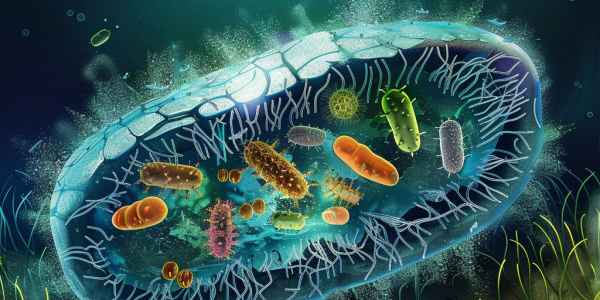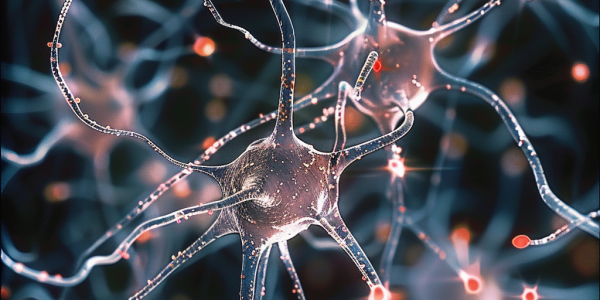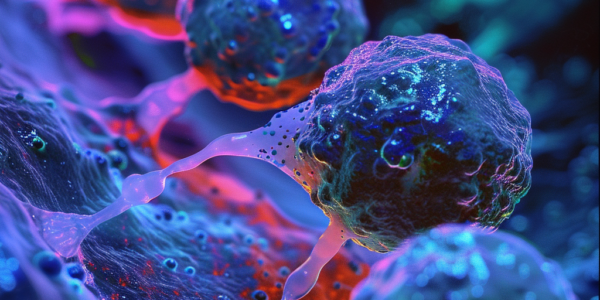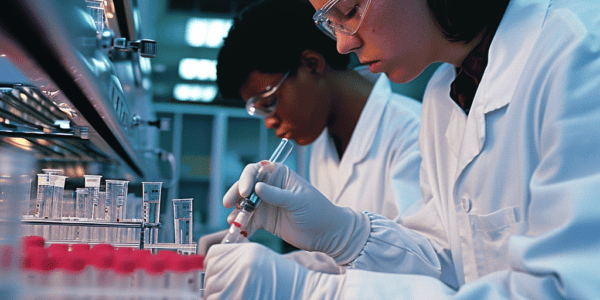Breakthrough Study Reveals Widespread Metabolic Diversity of Endosymbionts
A groundbreaking study by the Max Planck Institute reveals the metabolic diversity of endosymbionts, particularly a newly discovered bacterium, ‘Candidatus Azoamicus ciliaticola,’ which uses nitrate respiration. This research uncovers the widespread presence of these organisms across various environments, including freshwater lakes, groundwater, and wastewater, highlighting their ecological significance and adaptability. The findings emphasize the importance of microbial diversity in ecosystem health and open new avenues for understanding microbial interactions and their roles in biogeochemical cycles.
Breakthrough Study Visualizes Nanoscale Water Generation, Paving Way for Innovative Solutions to Water Scarcity
Northwestern University researchers have made a groundbreaking discovery by observing nanosized water bubble formation in real time, shedding light on the catalytic process involving palladium. Published in the Proceedings of the National Academy of Sciences, this study has profound implications for water generation, especially in arid environments and space exploration, potentially revolutionizing resource management on Earth and beyond.
Groundbreaking Discovery: ‘Dark Oxygen’ Generated by Metallic Nodules in Pacific Ocean
Researchers have discovered a groundbreaking phenomenon in the Pacific Ocean, where polymetallic nodules generate oxygen in total darkness, challenging traditional beliefs about life on Earth. This study highlights the ecological implications of mining in the Clarion-Clipperton Zone, emphasizing the need for careful environmental consideration as valuable resources are extracted from the ocean floor.
Neuroscience Study Reveals Link Between Oxygen Deprivation and Memory Formation
The latest neuroscience research reveals how oxygen deprivation can hinder memory formation by triggering anoxia-induced long-term potentiation (aLTP). Scientists have identified a feedback loop involving glutamate and nitric oxide that sustains aLTP, disrupting the brain’s normal memory-enhancing mechanisms. This discovery may offer new strategies for addressing memory issues in stroke patients.
Venus Experiencing Loss of Gases in Upper Atmosphere, Study Finds
A new study has revealed that Venus is experiencing a loss of gases such as oxygen and carbon from its upper atmosphere. The research, published in the Nature Astronomy journal, highlights the findings from the Mercury-bound BepiColombo spacecraft’s second fly-by of Venus in August 2021. These recent revelations add to the existing knowledge about Venus, raising questions about the potential implications for Earth and prompting further exploration of Venus to better understand these phenomena.
Groundbreaking Bioluminescence Imaging Technique Revolutionizes Study of Oxygen Movement in the Brain
Groundbreaking study introduces bioluminescence imaging technique for real-time observation of oxygen movement in the brain, shedding light on hypoxia and related diseases. Method offers detailed insights into oxygen distribution and potential therapeutic interventions.
Breakthrough in Understanding Cancer Cell Adaptation to Low Oxygen Environments
Researchers at the Francis Crick Institute have discovered how cancer cells adapt to low oxygen environments, offering potential insights into preventing therapy resistance. The study revealed that cancer cells increase glycolysis within three hours of oxygen deprivation, independent of HIF1α, with the crucial role of enzymes LDHA and GOT1 in regulating the process. This breakthrough could have implications for targeting treatment-resistant cancer cells within tumors with limited oxygen access.
Study Finds Link Between Finger Length Ratio and Oxygen Metabolism Efficiency in Athletes
A recent study from Swansea University reveals the correlation between finger length ratio and oxygen metabolism efficiency in athletes. The research, published in the American Journal of Human Biology, highlights the impact of the 2D:4D ratio on oxygen metabolism, with implications for disease severity and athletic performance.
Video Depicts Terrifying Consequences of Earth Losing Oxygen for Five Seconds
A new video has been causing a stir on social media, shedding light on the terrifying consequences Earth would face if it were to lose all its oxygen for just five seconds. The hypothetical scenario depicted in the video has…
Genetic Influence on Body’s Response to Low Oxygen
Genetics May Influence the Body’s Response to Low Oxygen, Pitt Study Finds University of Pittsburgh Schools of Medicine researchers have made a significant breakthrough in understanding the body’s response to limited oxygen and its impact on blood vessel disease of…










